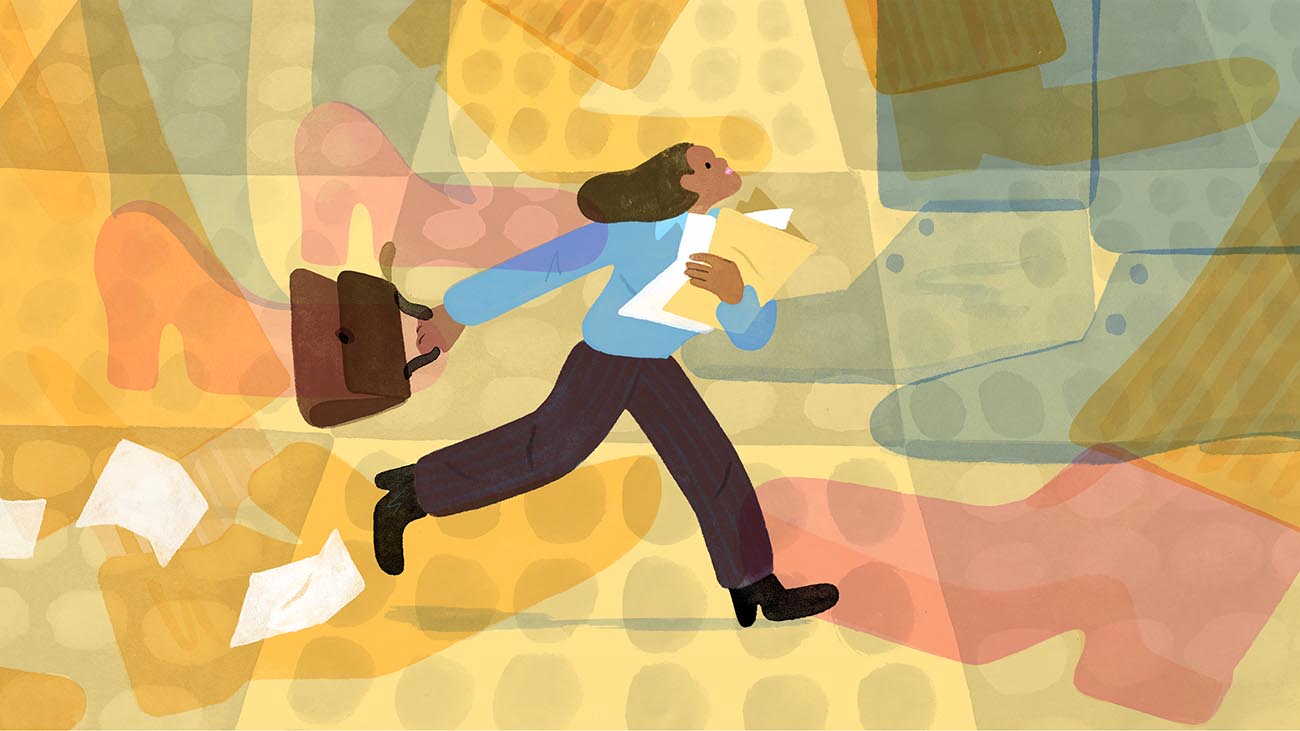
In 2002, one month after being called to the bar, Michele Allinotte had her first solo appearance in court. As a junior associate at what’s now called McDonald, Duncan, Doré LLP, a business-and-real-estate firm in Cornwall, Ont. — a small city near the Quebec border — she’d taken on a vulnerable client: an older woman of limited means who was being sued by a real-estate company for an alleged breach of contract. To prepare for her courtroom debut, Allinotte did all the right things. She studied the case files exhaustively, anticipated what opposing counsel might argue and walked her client through the questions she was likely to face.
On the day of the hearing, Allinotte put on her one good outfit — a black Cleo pantsuit and blue knit top — and made her way to the courthouse. Then she had trouble finding the right courtroom. By the time she arrived, she was out of breath and flustered. That’s when the terror set in. “I remember thinking, I’m going to screw this up,” she says. “What the fuck am I doing here?”
In that moment, Allinotte was suffering from what’s commonly known as imposter syndrome. Those who struggle with this condition are plagued by an incessant fear that they are a fraud, the one incompetent person in an industry full of pros. No amount of hard work or career success can fully alleviate this anxiety. In the years following that courtroom blunder, Allinotte continued to grapple with feelings of self-doubt. “I’m a high achiever, and I’m a recovering perfectionist,” she says. “Throughout my career, I’ve had this persistent feeling that I’m stupid and lazy and that everybody’s better than me.”
As a group, lawyers are uniquely prone to low self-esteem in the workplace. And it isn’t hard to see why: the culture of the profession prizes perfection and shuns vulnerability. Senior lawyers, hoping to preserve the illusion that they’re flawless practitioners, are loath to publicly admit their failings. Newcomers, as a result, are under the false impression that every mistake they make is a shameful aberration.
According to Lianne Krakauer, a Toronto-based career and leadership coach, the profession can overcome — or, at least, mitigate — its susceptibility to imposter syndrome. First, senior lawyers need to get better at giving constructive feedback. In her view, partners and senior associates rarely hesitate to admonish junior colleagues for mistakes, but they need to do so patiently, with the goal of building confidence and competence by allowing each junior to learn from that feedback. They should also demonstrate humility by acknowledging the errors they’ve made in the past. Second, everyone in the industry — old and young — needs to make peace with imperfection. As Krakauer puts it: “The trick is to say, ‘I did this job only 90-percent well, but that’s good enough.’”
Over time, Allinotte came to learn that slip-ups are a normal part of legal practice. In 2005, a particularly teachable moment occurred. As an associate at Valin Partners LLP, a full-service firm in North Bay, she had to make an impromptu court appearance in a tax-law case because the lawyer in charge of the file was out of town. In court, the judge asked if her firm had provided a disclosure, and she candidly told him that she didn’t know. When he laughed, she rifled through her files and eventually found the answer. It wasn’t her best moment, but it was fine nonetheless. And it certainly didn’t mean she was a terrible lawyer.
Today, Allinotte is back in Cornwall, where she runs Journey Law, a firm that focuses on business, real estate and estate planning. Even now, she still experiences bouts of imposter syndrome, but she has learned how to handle it. “When I have a twinge of doubt, I look up the law and double-check that I’m right,” she says. “It makes me a better lawyer.”
When she thinks back to that first courtroom appearance in 2002, she vividly remembers her sense of mortification. But the feeling subsides when she reminds herself of one important detail: “In the end,” she says, “I did win the case.”
Illustration by Tallulah Fontaine
